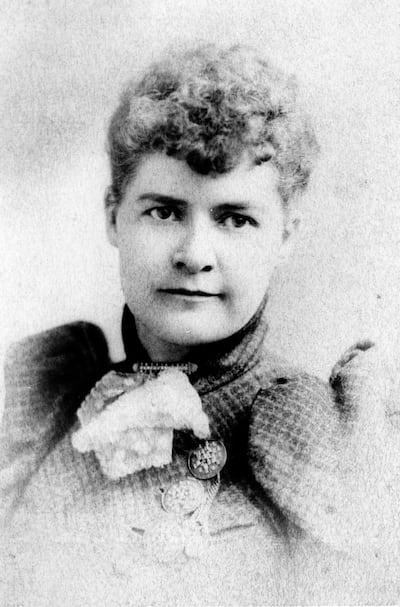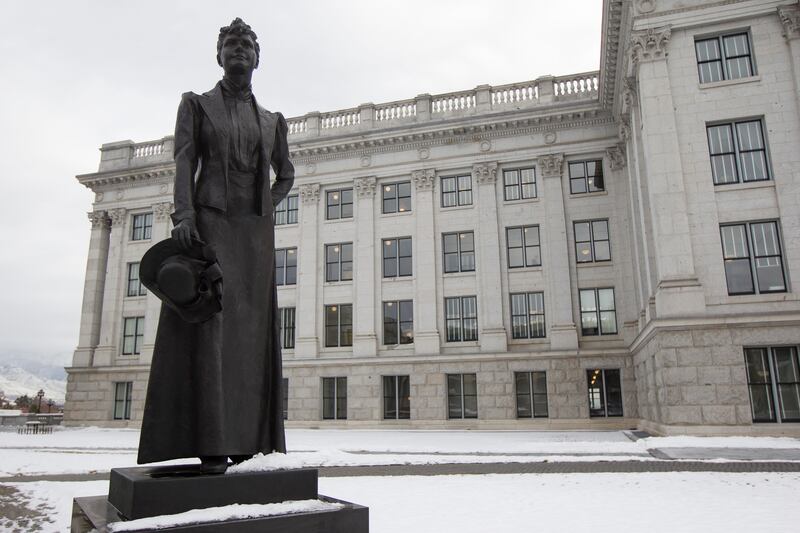Editor’s note: This address by Sen. Mike Lee was delivered on the floor of the Senate on Feb. 12, 2020.
Mr. President,
On Feb. 14, 1870 a remarkable thing happened in Utah — something that changed the course of history not just in our state, but in our entire nation.
Seraph Young, a 23-year-old school teacher, became the first American woman to cast a vote in a political election under an equal suffrage law.
It was a moment that both followed and preceded a long line of remarkable contributions from Utah women — women who have pioneered and led in our state and in our nation.
Take Mary Fielding Smith, the wife of Hyrum Smith, one of the early leaders of The Church of Jesus Christ of Latter-day Saints. After Hyrum was murdered, the resilient widow followed in Brigham Young’s footsteps, taking her children and leading a group of pioneers across 1,300 miles of wilderness into the West.
Through a combination of faith and grit, she braved treacherous weather, a massive buffalo stampede, and myriad hazards, successfully leading the entourage to a settlement where they could build a new life.
Other Utah women continued to blaze trails — Martha Hughes Cannon standing out among them.
At a time when women rarely went to college, Martha aspired to be a medical doctor, earning a degree in both medicine and pharmaceuticals. A skilled public speaker, she also earned degrees in oratory and public speaking, giving her four degrees by the time she was 25.

In the late 19th century, she quickly became a leader in Utah’s burgeoning women’s suffrage movement, putting her speaking skills to good use.
At a large suffrage meeting held at Temple Square in 1889, she argued: “No privileged class either of sex, wealth or descent should be allowed to arise or exist; all persons should have the same legal right to be the equal of every other.”
In the first year that women could vote and run in a Utah election, Martha ran as a Democrat for one of five state senate seats, even running against her own husband. She became the first woman to be elected as a state senator in both Utah and the whole country, and went on to sponsor many successful and influential legislative proposals.
And all the while she was in public office, she continued to run her private medical practice and raise her three children.
It is indeed fitting that we will soon be installing a statue of this extraordinary woman here in the Capitol building.
Fast forward to today, where Utah women are continuing to carry the banner of public leadership and service.
We have Ruth Watkins as president of the University of Utah; Astrid Tuminez as president of Utah Valley University; Noelle Cockett as president of Utah State University; Deneece Huftalin as president of Salt Lake Community College; and Beth Dobkin as president of Westminster College.
We have Gail Miller, philanthropist and entrepreneur, who took over ownership of the Utah Jazz after Larry died, as well has his other companies. She has led the team and companies with exceptional grace, dedication and success; and has helped their philanthropic arm champion education, homelessness and family causes.
And we have Carine Clark, President and CEO of Banyan, forging paths in Silicon Slopes and Utah’s tech community.
In all different capacities, in all different fields, Utah women are continuing to make invaluable contributions in our state and in our nation.
These women have offered — and continue to offer — much-needed gifts to their families, communities, schools, churches, businesses and governments.
When Martha Hughes Cannon spoke before a United States Senate committee about the success of women’s suffrage in Utah, she said: “The story of the struggle for woman’s suffrage in Utah is the story of all efforts for the advancement and betterment of humanity.”
As we approach the 150th anniversary of Seraph Young’s vote, and as we enter the centennial year of the 19th Amendment, it is only right that we honor the legacy of these remarkable women, and all they have given to my state and our country.
I yield the floor.
Sen. Mike Lee is the senior United States Senator from Utah.



